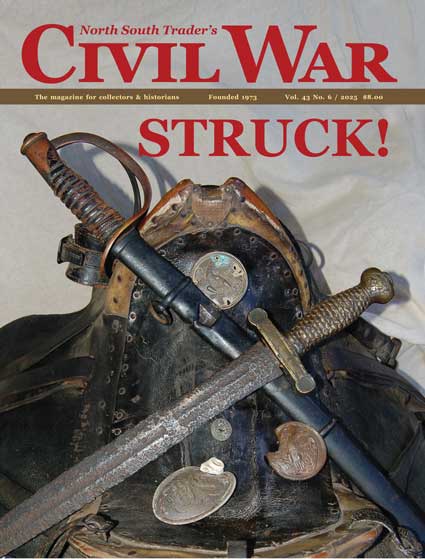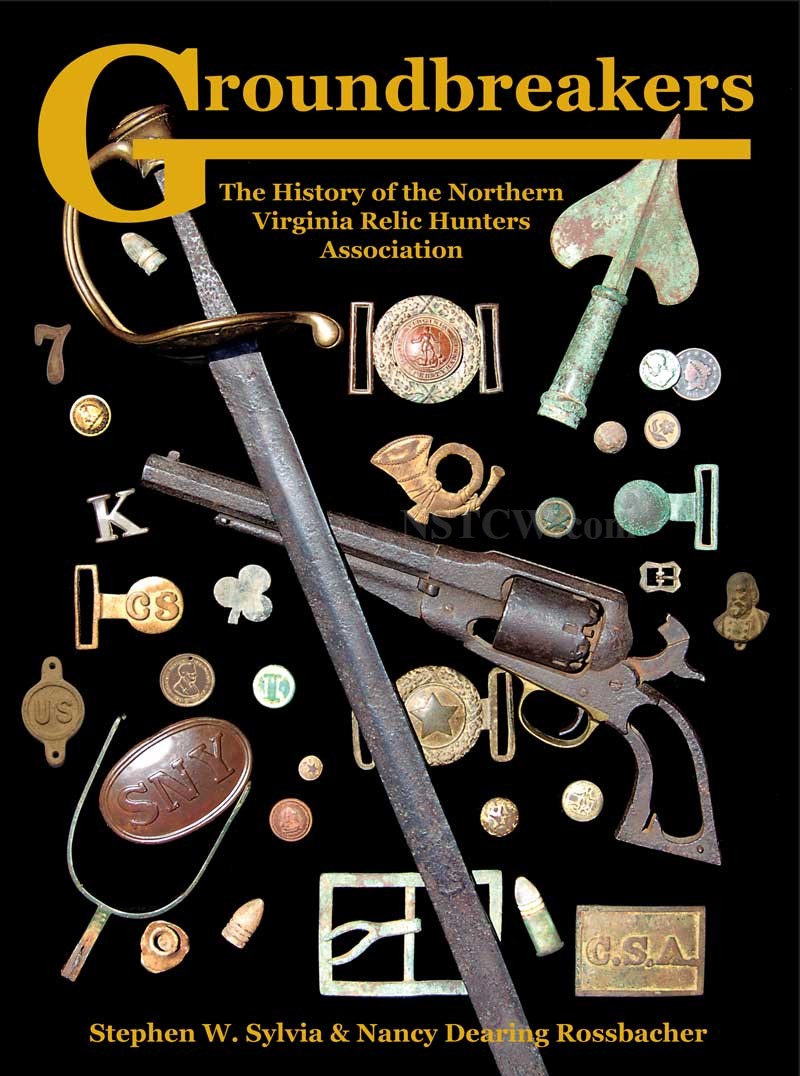|
Publisher's Forum Issue: 35-1 |
|
Like most Americans I have been deeply concerned over the past several years about our economy, our leaders, our enemies, our borders, our wars, and our planet. No matter where you go these days, you will hear snippets of conversation swirling about you on one of these topics. Americans are angry, scared, disappointed, or defensive. It's like an epidemic of distressing chatter. As a barometer of those prevailing attitudes, we encountered every conceivable extreme on the issue of relic values while in production for our new edition of The Civil War Collector's Price Guide. “Things are great” and the “sky is falling” seemed to delineate the far extremes. Somewhere in the middle were the cautiously hopeful, the worried, and the anxious. People are concerned not just about their collections but also the survival of the history that gives those relics context. The many cooler heads among our contributors have not succumbed to panic, and they submitted evaluations based on the market, not on dire predictions or fearful expectations. The term “market” by its nature implies an element of hope. Market is not based on cynicism. Unfortunately, our nation's leadership across the board has not been successful at calming America's anxieties. We only hear what has been determined necessary to garner a predictable response. To assess the day-to-day state of affairs, we are compelled to discern the truth concealed in the excessive spins of the partisan media, wade through the falsehoods and exaggerations clouding honesty on the Internet, and resist the gossipy paranoia that enshrouds every coffee shop, water cooler, and neighborhood bar in the land. No single cultural, religious, or political leader in America has stepped up to the plate to comfort and guide us. Where is our man of the hour? Where is our Jefferson, Lincoln, Roosevelt, or Kennedy? Where is our Mark Twain, Billy Graham, or Dr. King? Where is our Edward R. Murrow, Will Rogers, or Walter Cronkite? Unfortunately, we don't have an experienced and noble soul to calm us with fireside chats, inspire us with personal deeds of valor, steel our hearts with words of wisdom, or offer the gentle solace that gives us hope. Lacking such an icon, I will offer my small slice of positive thinking. The few words I offer aren't words of empty rhetoric, petty promises of change, or lectures about what we should have done or what someone did wrong. They are simple suggestions about perspective. First of all, as an American historian, I suggest we reassess our future after looking at our past. Just think about the adversity Americans before us have experienced: revolution, Civil War, Depression, and two catastrophic world wars. Look at what we've had to go through to further develop America's dream: freedom from oppression, emancipation, women's rights, and civil rights. These are not small achievements. We continue to confront and wrestle with our national flaws and even with some negative elements of human nature to remove more obstacles to the American Dream. When you examine America in the years immediately preceding the Civil War, you will see an upheaval not unlike the current one. It is reflected not only in the editorial pages of national newspapers but also in the popular books, plays, music, and artwork of the day. The national obsession with the condition is really no cause for terror. It is simply human nature responding to crises. I have recently heard it said many times: “I've never seen it like this” or “America is on its knees” or some other similar wailing. Well, the nation has seen and experienced such before and we beat it—more than once. The simple fact that generations of our ancestors had to tackle such huge problems and, in each and every case, triumphed should give heart to every one of us. We should take strength in the fact that we are a capable and determined people who have taken on every adversity that a people can face and won. We are a people who are willing to sacrifice and willing to make tough decisions. That strength of character, that nobility, has been downplayed in recent years. But that doesn't nullify it. It's still there. There's nothing like traveling to a foreign country to gain a little perspective about your own nation. I recently visited the Dominican Republic and spent a week traveling the historic island that has been home to Christopher Columbus, Henry Morgan, Francis Drake, Papa “Doc” Duvalier, and Rafael Trujillo. It is a lush tropical island that posseses both extreme natural beauty and rich history while offering harsh glimpses of poverty, despair, and the other loathsome aspects common to every Third World country. I have driven through some of the worst places in America—from ghettos to remote places in the Appalachians--and never witnessed the poverty and desolation I saw on the back roads of the Dominican Republic. I realized that being out of work there is entirely different from being out of work in America. Being desperate there is not the same as being desperate here. Corruption in government there is not the same as it is here. Here you won't find “police” standing on the shoulder of the road with automatic weapons, pulling motorists over to shake them down. Even the days of America's smalltown speed traps have all but faded into the past. After some time spent in the Third World you'll see why America still, for many, has streets paved with gold. I'm not suggesting you all buy a plane ticket to an impoverished country to gain perspective. I am suggesting that you take a couple of minutes and check a few websites on foreign countries you'd like to visit and review their vital statistics—hourly wages, education levels, standards of living, degrees of poverty, unemployment, health care, and life expectancy. Then check out their attractions. Once you've done that, compare it all to America today. For the most part, we have the best of everything because we have striven to attain the loftiest ideals of a civilized nation. The zeal that that has impelled America toward that goal hasn't been quashed despite the efforts of some elements to dumb down our ambition and to neutralize the concept of a personal best. The advice I've given myself is to take a deep breath and calm down. Overreacting will not accomplish anything. A clear head is the crucial predecessor to action. Take a look at the past, reassess this great country, and take heart from our national character. Then buy a ticket and visit an island paradise. When you return you'll see that you already live in one. —Pub. The publisher welcomes comments from readers. Please write publisher@nstcivilwar.com. |
| Past Publisher's Forums click an issue number to view |
| 43-6 |
| 43-5 |
| 43-4 |
| 43-3 |
| 43-2 |
| 42-3 |
| 42-3 |
| 42-3 |
| 42-3 |
| 42-3 |
| 41-6 |
| 41-5 |
| 41-1 |
| 40-5 |
| 40-4 |
| 40-3 |
| 40-1 |
| 39-6 |
| 39-5 |
| 39-4 |
| 39-3 |
| 39-2 |
| 39-1 |
| 38-3 |
| 38-2 |
| 38-1 |
| 37-6 |
| 37-5 |
| 37-4 |
| 37-3 |
| 37-2 |
| 37-1 |
| 36-9 |
| 36-6 |
| 36-5 |
| 36-4 |
| 36-3 |
| 36-2 |
| 36-1 |
| 35-6 |
| 35-5 |
| 35-4 |
| 35-3 |
| 35-2 |

